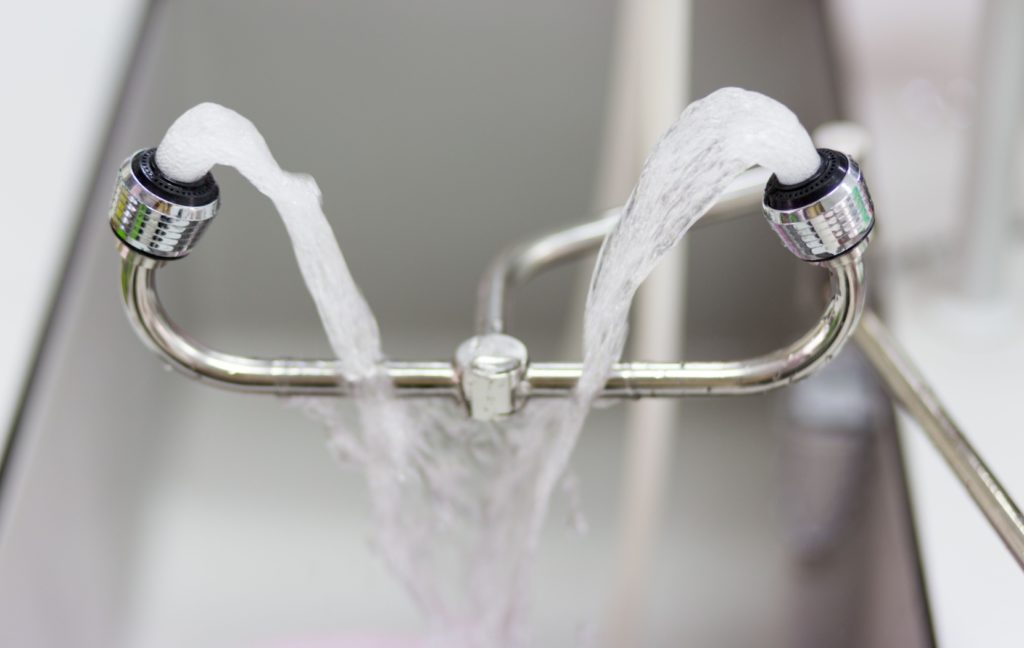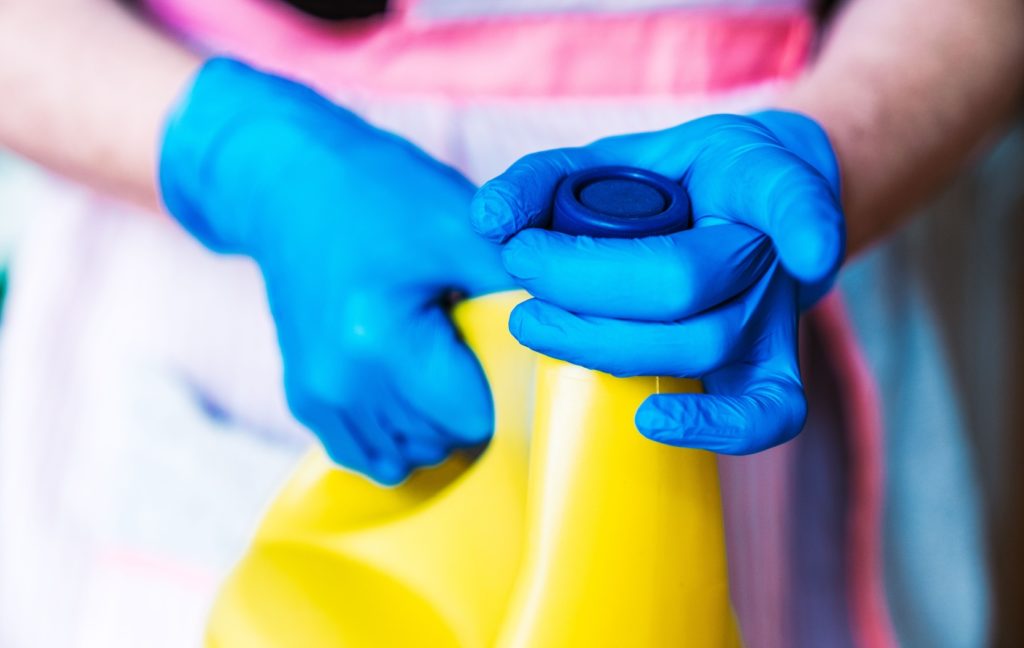Accidents happen. Whether you were cleaning in a rush or simply didn’t notice the splash, getting bleach in your eye can be a scary and painful experience. But don’t panic—knowing what to do (and acting fast) can make all the difference.
If you get bleach in your eyes, follow these steps:
- Don’t panic.
- Immediately rinse your eyes with water.
- Remove your contact lenses.
- Avoid rubbing your eyes.
- Get emergency eye care if necessary.
Why Is Bleach Dangerous for Your Eyes?
Bleach is a common household cleaning product, but its high chemical concentration can cause serious harm if it comes into contact with sensitive areas like your eyes. Bleach contains sodium hypochlorite, a harsh chemical that can lead to irritation, burns, and even permanent damage to your cornea.
The severity of the damage depends on how quickly you act, the bleach concentration, and how thoroughly you rinse your eye. This is why immediate action is critical.
Treating Bleach Exposure in Your Eye
Knowing exactly what to do if bleach gets in your eye can stop the situation from worsening. Follow these steps immediately after exposure.
1. Don’t Panic
It’s natural to feel alarmed by the pain and surprise of something as serious as bleach splashed into your eye. But staying calm will help you act quickly and correctly, which is crucial for minimizing damage.
2. Rinse Your Eye with Water Immediately
The most important thing you can do is to flush your eyes thoroughly with clean water. Here’s how to rinse effectively:
- Use clean, lukewarm water: If possible, use a sink with running water. Avoid using hot or cold water, which can irritate the eye further.
- Flush for 15 to 20 minutes: Position your head so the bleach doesn’t flow into your other eye. Hold your eyelid open and allow the water to gently flow over the affected area.
- Use a cup or showerhead if needed: If you can’t get to a sink, use a clean cup to pour water over your eye or stand under a gentle shower stream.
3. Remove Contact Lenses
If you’re wearing contact lenses, carefully remove them after rinsing your eye. Leaving them in can trap bleach and worsen irritation. If your lenses feel stuck, don’t force them out; continue rinsing and seek medical attention.
4. Avoid Rubbing Your Eyes
Your first instinct might be to rub your eye to ease the discomfort, but this can cause additional damage by spreading the chemical around. Stick to rinsing with water.
5. Seek Medical Attention If Necessary
Not all bleach exposures are the same. If you experience any of the following symptoms after rinsing your eye, contact a healthcare provider immediately:
- Persistent pain or burning sensation
- Blurry or reduced vision
- Excessive tearing or redness
- Noticeable swelling
Call a poison control center, your eye doctor, or visit your nearest urgent care center to get professional guidance and treatment.

Symptoms to Watch for After Exposure
Even after rinsing your eye thoroughly, it’s important to keep an eye on how it feels over the next 24 hours. Here are common symptoms to monitor for and what they might indicate.
1. Mild Irritation
Your eye may feel slightly irritated or dry. This is normal and often temporary after chemical exposure. Keep it hydrated with over-the-counter artificial tears (avoid medicated eye drops unless prescribed).
2. Pain or Burning
If the burning sensation persists for more than a few hours, or worsens, it could indicate a chemical burn. Seek medical attention if this happens.
3. Blurry Vision
Temporary blurry vision can occur immediately after rinsing. However, if it doesn’t improve or you notice sustained vision changes, consult a doctor promptly.
When to See a Doctor
While mild bleach exposure can often be treated at home with proper rinsing, there are situations where you should always see a medical professional.
You should seek immediate medical attention if:
- The bleach was undiluted or highly concentrated.
- Your eye feels significantly worse after rinsing.
- You experience severe pain, unrelenting redness, or vision changes.
- Eye swelling becomes extreme.
Doctors can assess your eye for chemical burns, provide pain relief, and offer specialized treatment to prevent long-term damage.
Preventing Accidents in the Future
Bleach accidents are often preventable with safe cleaning practices. Here are a few tips to protect your eyes the next time you tackle those cleaning chores.
Wear Protective Eyewear
Always wear safety goggles when using bleach or similar cleaning products. Goggles provide an effective barrier against splashes or accidental spills.
Dilute Bleach Properly
Follow the label instructions to dilute bleach whenever required. Using bleach in its concentrated form increases its harmful potential.
Keep a Safe Distance
When pouring or spraying bleach, hold the container at arm’s length and avoid standing directly over it.
Avoid Touching Your Face
Keep your hands away from your face while handling harsh chemicals, and wash them thoroughly after use. Consider wearing gloves when handling bleach and make sure to remove them before touching your face.
Your Eyes Deserve Care
Accidents like getting bleach in your eye can feel overwhelming, but acting quickly and knowing what to do can make all the difference.
At Dr. Henslick Vision Center, we’re here to help you with eye emergencies. If you’re experiencing an eye emergency, you can contact us immediately. You can also book your next eye exam with us today.




